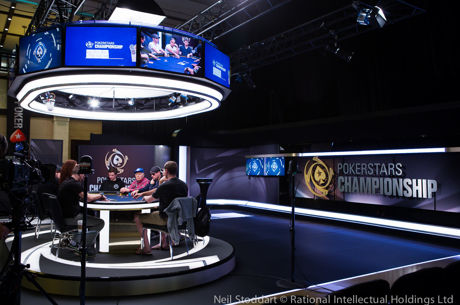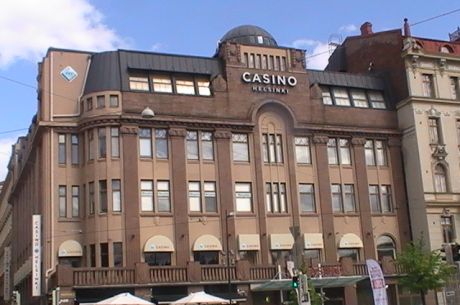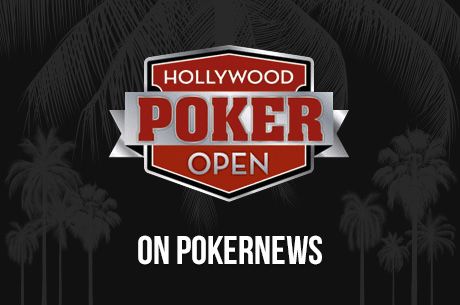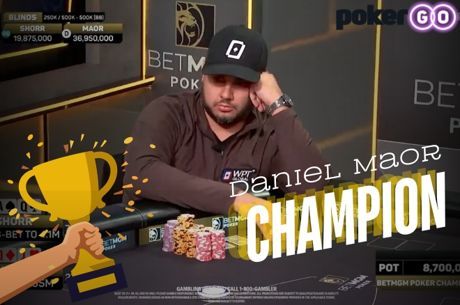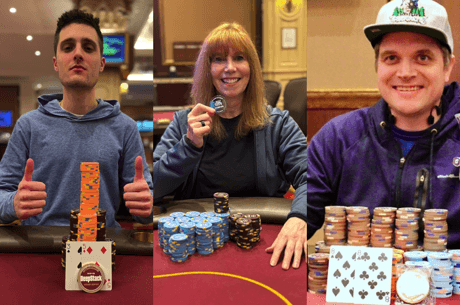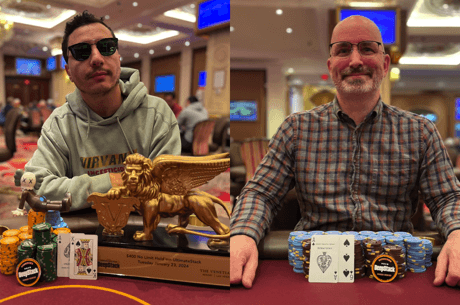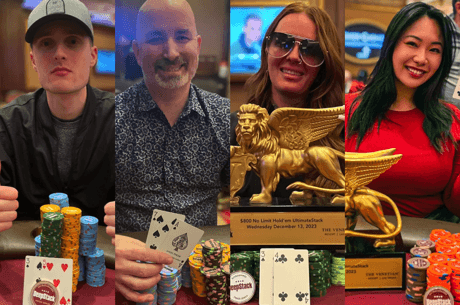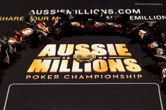Mike Schneider's New Tour Tries to Bring Fun Back to Poker
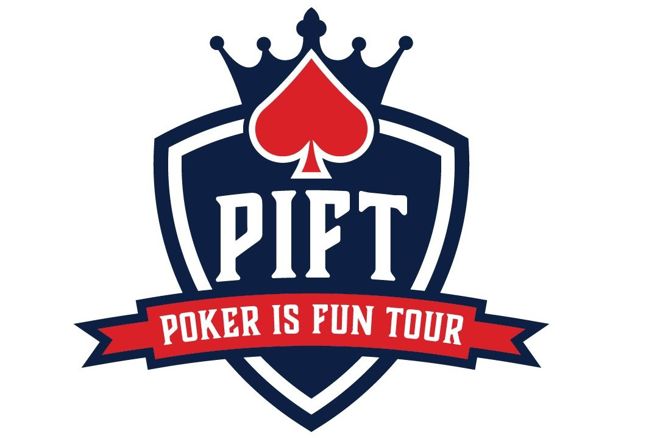
Poker tends to be seen as mostly a selfish pursuit.
Rightly so in most cases. The majority of poker players, even recreational ones, take seats at the table at least hoping that they'll walk away with some profits, which will come at the expense of the other players at the table. Taking from others to benefit oneself is the very definition of a selfish act.
Mike Schneider is trying to change not only that perception, but the reality. "Schneids," as he has long been known in online poker circles, recently unveiled plans for the Poker is Fun Tour. The concepts behind PIFT are two-fold: use poker tournaments as a tool to benefit the world through charity, and give poker players a different, more fun experience than they're used to when playing the cookie-cutter Texas Hold'em events that dot the live poker landscape.
"The idea for the Poker is Fun Tour has been in my head for a few years now," Schneider told PokerNews. "Basically, I just want to try to do something a bit different than what's already out there, while raising some money for good causes."
A Different Offering
Schneider, a longtime crusher in limit poker who spent years as a coach for now-defunct CardRunners, has been playing the game for a living for about 14 years, since he was 19. The vast majority of his poker hours over the years have been of the most serious variety. The man needed to book profits to pay his bills.
However, when he looks back on his fondest memories in the game, they're in a completely different setting.
"I most had fun playing the game either when it was with friends in the basement of our houses, or else when playing new games and getting the enjoyment out of trying to piece together proper strategies for games," Schneider wrote on his new website when he announced the birth of the tour.
The ultra-serious, grind-it-out mentality that permeates even the average $1K event has been a recent focus of industry luminaries like Matt Savage, who attempted to lighten things up with The Social Experiment, an event meant to encourage interaction among players.
The situation certainly hasn't been lost on Schneider. While most of his action nowadays comes in a regular $40/80 mixed game in his home state of Minnesota, he makes it a habit to pop in to the occasional tournament when events like the Mid-States Poker Tour pass through town. He's also a regular participant at the World Series of Poker.
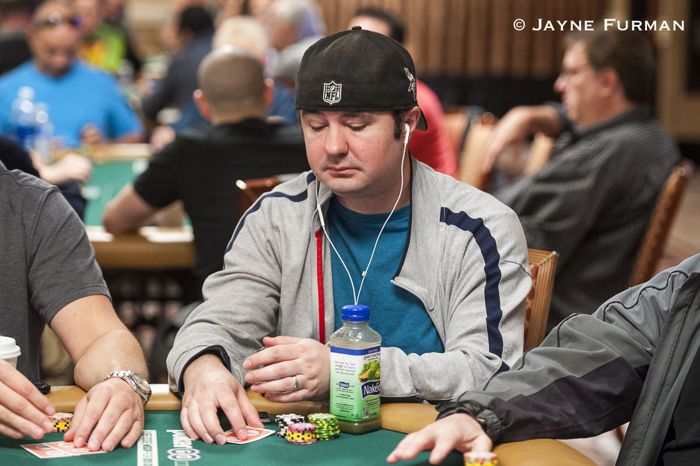
So, while he wrote that he has been among the chorus of people pointing at over-saturation as an issue in the poker market, he did feel there was a niche for a slightly different product.
Poker for Good
Schneider is also a man with a social conscience. Spending years as a professional player, he was well aware that every dollar he pocketed to further his own life was a dollar he lifted from the wallet of another individual.
The perception that poker players do nothing for society is one that many have tried to combat with contributions to charitable causes. Players like Dan Smith and organizations like the World Poker Tour have raised millions for charity in opposition to the image of poker as a societal drain.
From his own backyard, Schneider got a first-hand look at the good that could be done through poker. He's been a regular participant in the All In for Africa series that's been hosted by Minnesota casinos and gives 50 percent of the pool to charities benefiting Africa.
"For a long time now I've always felt like there needs to be more of a built in charity aspect to poker," Schneider said.
Making it Happen
So, Schneider had the idea of a new, different poker tour that would both benefit society and give participants a unique playing experience kicking around in his head for awhile.
Last winter, whiling away a frozen Minnesota night by sipping on a glass of wine with his wife, Schneider finally shared his vision.
"She thought it was amazing and encouraged me to go for it," he said. "I drafted up a bunch of ideas in word and finally worked up the courage to ask Canterbury Park if I could have a meeting about it. I presented it to them, and fortunately, they loved it."
Taking the stale no-limit hold'em format and turning it into something different and fun presented a challenge to Schneider.
On the one hand, he felt he had to work off of a no-limit hold'em base. After all, poker tours and venues have a bottom line, and that bottom line relies on butts in seats. Players needed to show up, and the majority of players aren't going to fire at even the modest price points being used by Schneider in games at which they are clueless.
On the other hand, Schneider was determined to provide something outside the box. So, how to appeal to the masses but at the same time get them to branch out a bit?
"All your bluffs will be known! All your nut peddling will be seen."
The first PIFT offering: a $450 "Winners Shown" event at Canterbury, running Sept. 9-10. Players who win the pot must always show their cards, regardless of whether there's a showdown.
"All your bluffs will be known!" reads the tournament description. "All your nut peddling will be seen."
Schneider also recruited his first charity partner for the event, linking up with Second Harvest Heartland, a food bank based in the Twin Cities that serves more than 500,000 per year. As per PIFT standard, they'll receive 1 percent of the prize pool.
"We believe 1 percent is enough to make a difference, without robbing you of your hard earned prize pool," Schneider wrote. "Over time, through our continued small donations, we will help positively change the world in a large way."
Furthermore, Schneider is looking to expand upon that amount by finding local "pledge partners" to match donations. He's already found one in local business Good Day Cafe, which has agreed to a 100 percent match up to $1,000 for the inaugural event.
The Future of PIFT
Schneider's passion project is just getting rolling, but already he has his principles set and some ideas brewing for the future.
While he said he isn't opposed to multiple-day events, he's largely going to keep things condensed down to one-day tournaments. That's a stark change from other tours, which continue to try to pile more chips and sometimes longer levels.
For example, WSOP events that once gave 10,000 starting stacks have morphed into 50,000 starting stacks with minimally important play in early levels. Typical Day 1s at many events run for 10 or more hours, and 15-plus hour days aren't unheard of.
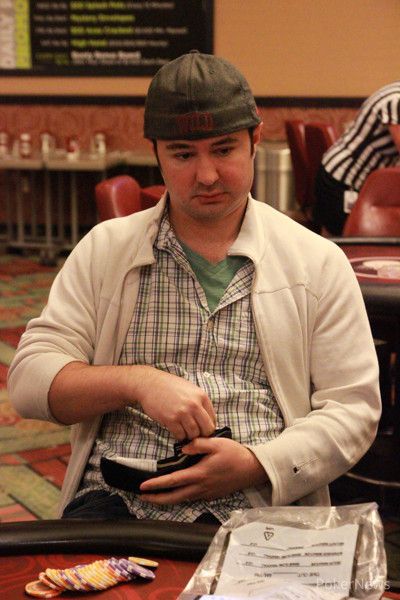
Schneider points out that these deeper stacks and slower structures give more experienced players an edge, and he's looking to slant things a little more toward the casual player. That means slightly faster levels, payouts to 15 percent of the field and rule tweaks to force players to adjust their typical strategies away from their robotic grinding.
While some might recoil in horror at the thought of faster structures, Schneider is certain there's a market, after speaking with a number of players who wouldn't be termed regulars.
"A lot of them have told me that they liked it better when tournaments started and ended the same day and their lives are too busy with work or family to be able to commit to potentially two or three days of tournament playing," he said.
Players such as Daniel Negreanu have been beating the drum for years about how it's essential for the future of poker that games evolve beyond simply spreading no-limit hold'em.
Schneider has also long been among the crowd railing against the proliferation of standard no-limit hold'em events. As a limit grinder, he pines for the days of more limit events. But, broadly speaking, he has first-hand experience that tells him that stale formats will gradually kill action.
In the $40/80 game at Canterbury, limit hold'em dominated for years �� no-limit cash games are against state law, although casinos have found clever ways around the rules. Action began to dry up though, and Schneider said the game was on the verge of dying. The players coaxed it back to life by slowly incorporating more games and making it a mix.
"To me that just showed that perhaps out there, there's a thirst for something beyond standard old Texas Hold'em," he said.
Schneider has planned out a host of future twists for his events, with "Winners Shown" the first of many, and possibly the tamest. He's looking at incorporating jokers, a third hole card, and formats that mix limit and no-limit on different streets. As more quirks get introduced, he's even thinking of tournament down the line where a wheel spins to decide the twist for a given level.
With all of the time and effort he's putting into PIFT, he does hope the venture turns a profit at some point. However, he maintains that his primary goal is give poker players a different experience while raising money for good causes.
"Realistically, I'll be thrilled if six years from now PIFT has been responsible for $100,000 being raised for charity, and me personally to have broken even running the events," he said.
"I just hope that as people read about PIFT and learn what its about and what its aiming to be, players buy into the concept and through that, it can snowball into something that's fun and unique."

